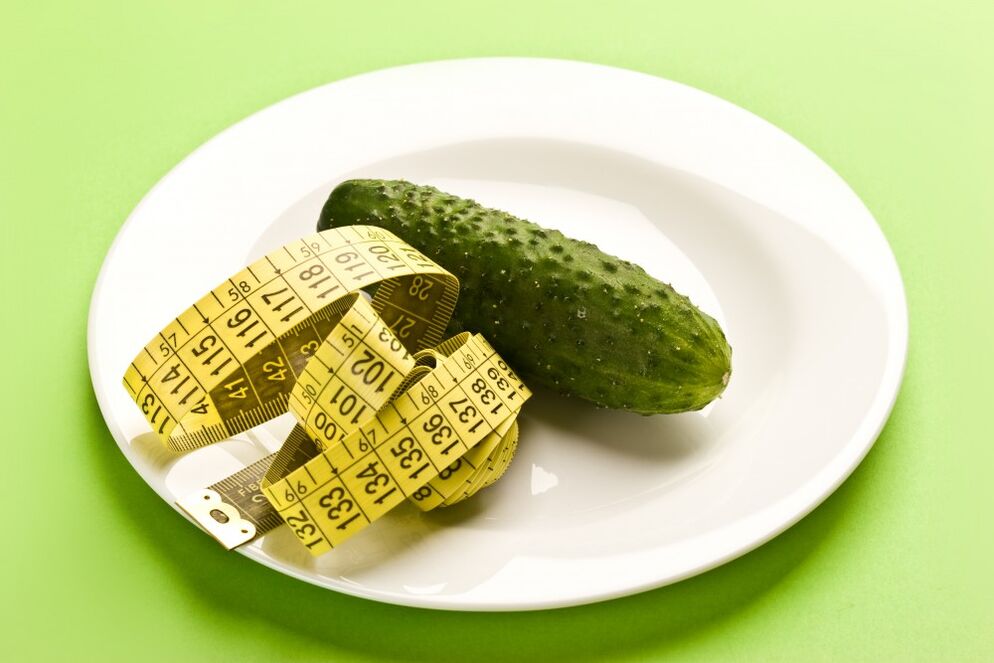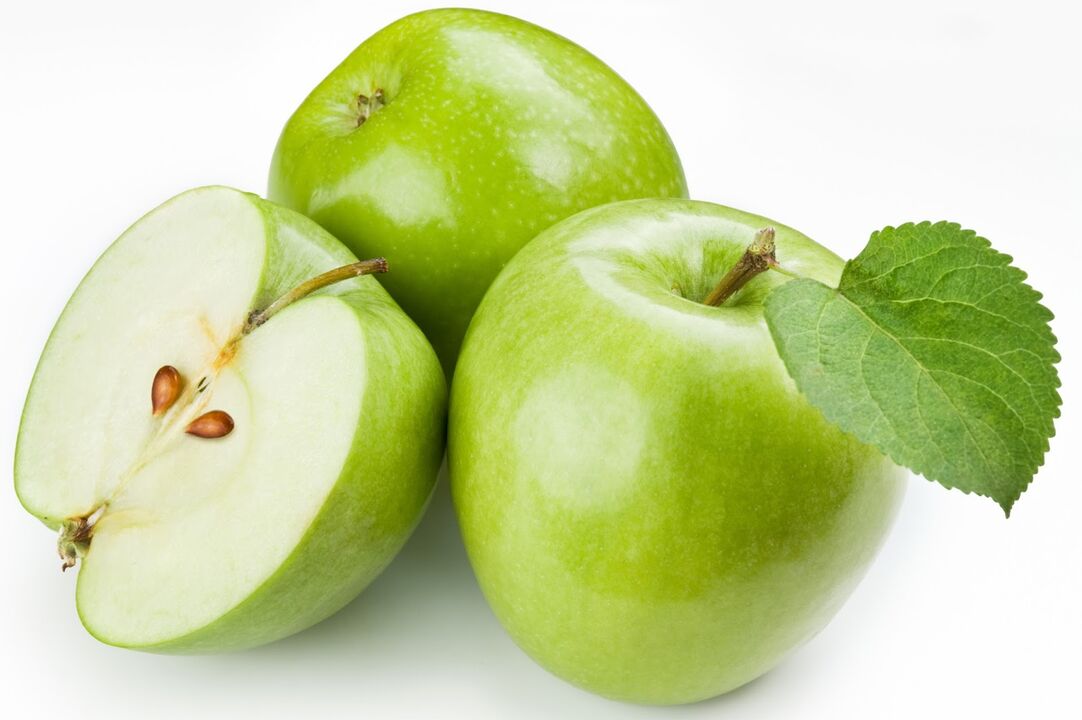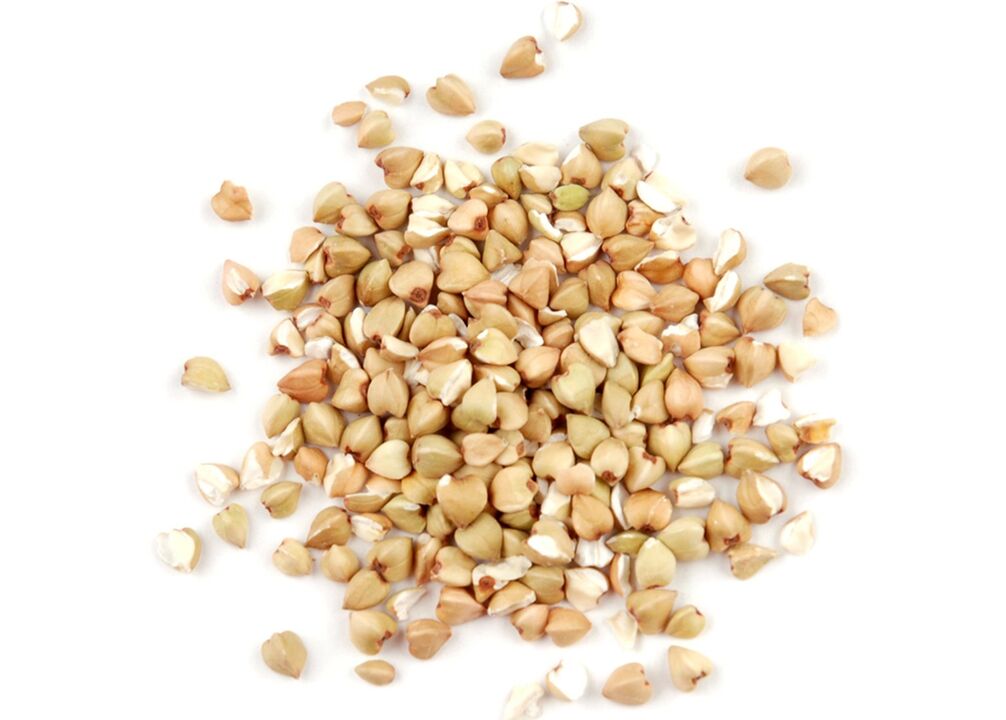A fasting day should be organized several times a week. The most effective systems allow you to lose 1-2 kg in 24 hours. During this period, the intestines and other internal systems are cleaned: waste and toxins are removed from the body faster.
What is a fasting day, what is it for and how often should it be organized?
A day of fasting (the most effective food systems are presented later in the article), as a variant of a mono-diet, brings not only benefits to the body. It cannot be organized without prior preparation. During fasting days, there is an intense release of fat cells from the subcutaneous layer.
The main condition is compliance with all the rules of the methodology. Before a mono-diet, it is necessary to prepare the body for a new regime. Experts recommend including easily digestible foods in your diet and reducing portion sizes.

During fasting days, it is necessary to observe the drinking regime. This will speed up the removal of toxins from the intestines, liver and blood. The systematic use of strict diets can improve the functional activity of the gallbladder, digestive tract and other internal systems.
48 hours before the fasting day, you should try not to physically overload the body.
Completely exclude from the diet:
- alcohol;
- canned foods;
- semi-finished products;
- smoked, fatty and salty foods.
Fasting days can be organized no more than 2 times a week (for example, Tuesday and Friday).
You cannot stick to a daily mono-diet during pregnancyand breastfeeding him. Fasting days are contraindicated for people suffering from chronic diseases of the digestive tract.
Kefir fasting day
Kefir contains more than 20 types of lactobacilli necessary for the normal functioning of the intestines.
A day of fasting on a fermented milk drink allows you to:
- eliminate the feeling of heaviness;
- preventing the development of constipation;
- strengthen hair, nails, bones;
- elimination of nervousness;
- restoration of intestinal microflora.
The product contains a large amount of calcium and has a mild diuretic effect.
Fasting days on kefir are useful for people who suffer from:
- hypertension;
- atherosclerosis;
- dysbacteriosis;
- gall bladder and liver pathologies.
Mono-daily diet has a number of contraindications, which include:
- ulcerative lesions of the stomach and intestines;
- gastroduodenitis;
- colitis;
- gastritis.
It is not recommended to use kefir for people suffering from high acidity. The drink can cause heartburn.
Basic rules for a day of fasting on kefir:
- the drink must be as fresh as possible (at least 5 days from the production date);
- It is better to use low-fat kefir (1-1. 5%);
- daily rate - at least 1. 5 liters (5-6 doses);
- during the fasting day it is strictly forbidden to consume sugar and salt;
- mono-diet involves reducing physical activity;
- On the eve of fasting, it is recommended to eat more foods containing protein.

During a mono-diet with kefir, you can eat cottage cheese, apples, cucumbers and oatmeal.
Sample menu:
- breakfast - 250 ml kefir with cinnamon;
- lunch - 250 ml of kefir, 100 g of cottage cheese;
- lunch - 250 ml of kefir, 2 fresh cucumbers;
- afternoon snack – 250 ml kefir, green apple;
- dinner - 250 ml of kefir, oatmeal;
- late dinner - 250 ml of kefir.
In addition to fermented milk drinks, you can drink carbonated mineral water and green tea throughout the day.
Kefir and cottage cheese
Fasting days on kefir and cottage cheese allow you to normalize metabolism and saturate the body with vitamins, minerals and essential nutrients. The products have a beneficial effect on the condition of bones and skin. Kefir in combination with cottage cheese helps to remove swelling.
The daily diet is contraindicated for people suffering from kidney diseases, gastritis, ulcers and diabetes. Individual intolerance to curd or kefir is considered an absolute restriction. During a daily mono diet, it is not recommended to consume foods with a fat content of more than 2%.
One of the main conditions for a fasting day is compliance with the drinking regime.During the day you can drink tea, coffee (without milk or sugar) and mineral water without gas. Daily intake of calories is not more than 700 kcal. 24 hours before the mono-diet, it is necessary to limit the amount of fatty and heavy foods.
You can consume cottage cheese and kefir in unlimited quantities. A daily mono-diet includes 5-6 meals. Between them you need to maintain an interval of 1. 5-2 hours. Experts recommend to refrain from light meals.
Sample meal plan:
- 00 - 250 ml of kefir;
- 30 - 100 g of cottage cheese;
- 00 - 250 ml of kefir;
- 30 - 100 g of cottage cheese;
- 00 - 250 ml of kefir;
- 30 - 100 g of cottage cheese;
- 00 - 250 ml of kefir;
- 30 - 100 g of cottage cheese;
- 00 – 250 ml kefir.
Kefir goes well with bran. You can add rye, oats or wheat to the fermented milk drink (no more than 1 tablespoon per 250 ml).
Kefir and oats
One day of fasting (the most effective methods allow you to lose up to 4 kg per day) with oats and kefir is considered one of the most popular. Products in combination with each other quickly satisfy hunger and increase performance.
Fasting days with oats and kefir contribute to:
- removing toxins and waste from the body;
- reduction of pain in diseases of the musculoskeletal system;
- rapid weight loss;
- normalization of intestines and stomach.
During a daily diet, experts recommend preparing porridge from oats. It is better to take long-cooked grains. Porridge is prepared as follows: put the flakes in a pan, add 500 ml of water and boil on low heat for 20 minutes. Sugar, salt and honey should not be added to the dish.
Sample menu:
- breakfast - oatmeal;
- lunch - 250 ml kefir;
- lunch - oatmeal;
- afternoon snack - 250 ml of kefir;
- dinner - oatmeal;
- late dinner - 250 ml of kefir.
Mono-diet is contraindicated for pregnant and lactating women. It is not recommended to organize fasting days for people suffering from intestinal and stomach diseases.
Kefir with vegetables
Experts do not recommend combining kefir with any other vegetables, except for fresh cucumbers.A strict version of the mono-diet involves cleansing the body of waste, toxins and removing excess fluids. The products contain a large amount of microelements (phosphorus, magnesium, potassium, zinc, manganese, iron), vitamins (B12, B1, A, PP, C) and dietary fiber.
The energy value of the products is low, so the system is not suitable for people whose work activities include physical activity. During a mono diet, experts recommend consuming only ground vegetables.
Contraindications:
- tendency to allergic reactions;
- lack of iron in the blood;
- vascular and heart diseases;
- children or old age;
- kidney and urinary system pathologies;
- the period of childbirth and breastfeeding;
- diabetes mellitus (regardless of the type);
- pathologies of the digestive tract.
You can make a refreshing cocktail from kefir and cucumbers and drink it throughout the day. To do this, add finely chopped or chopped vegetables (500 g) to the fermented milk drink. The ingredients are mixed (you can add some greenery) and the cocktail for 6 servings is ready.
Another option for the download menu:
- breakfast - 250 ml of kefir, 2 fresh cucumbers;
- lunch - 2 fresh cucumbers;
- lunch – 250 ml, 2 fresh cucumbers;
- afternoon snack - 250 ml of kefir;
- dinner - 250 ml of kefir, 2 fresh cucumbers;
- late dinner - 2 fresh cucumbers.
It should be remembered that a combination of foods can cause diarrhea. This is a normal phenomenon, which indicates the beginning of the intestinal cleansing process.
Kefir with buckwheat
Kefir in combination with buckwheat is another option for a fasting day. The products improve the functioning of internal systems and help to clean the intestines. Kefir with buckwheat porridge restores microflora.
Experts recommend consuming green buckwheat during a mono diet.
This cereal was not subjected to preliminary heat treatment, so all the minerals and vitamins were preserved in it. During the fasting day, drink up to 2 liters of kefir (1%). Buckwheat is prepared in advance: 250 g is poured with 500 ml of boiling water, the container is covered with a lid and left for 8 hours.

The finished porridge is divided into 3 portions. It should be consumed without salt, sugar and butter. You can also pour fermented milk drink over buckwheat and leave it for 6-8 hours in a warm place. In addition to kefir, you can drink up to 1. 5 liters of herbal tea or still water per day.
Sample menu:
- breakfast - 250 ml kefir, buckwheat porridge;
- lunch - 250 ml kefir;
- lunch - buckwheat porridge;
- afternoon snack - 250 ml of kefir;
- dinner - buckwheat porridge;
- late dinner - 250 ml of kefir.
The technique cannot be followed by people suffering from allergic reactions. Fasting days are contraindicated for children. Pathologies of the digestive tract are considered absolute limitations.
Watermelon day
A day of fasting (the most effective options include strict restrictions) on watermelon ensures the removal of excess fluids from the body.
Ripe berries contain a large amount of vitamins and minerals necessary for the normal functioning of the body:
- acids of organic origin (including folic acid);
- lycopene;
- iodine;
- zinc;
- phosphorus;
- magnesium;
- calcium;
- iron;
- vitamins B1, B2, PP, C, A.
Simultaneously with the cleaning of the intestines, the fat burning process also starts. Diet ensures blood renewal. Experts recommend taking a responsible approach to choosing berries: if the pulp contains carcinogens and nitrates, then there is a high risk of developing severe intoxication. Lycopene can provoke a negative reaction, manifested in the form of hyperemia and redness.
Watermelon has a strong diuretic effect, so it is recommended to organize fasting days no more than once a week. A mono-diet involves the exclusion of any liquid, including still mineral water. The watermelon must be cut, the pulp separated and the seeds removed. We divide it into 6 equal parts. The red berry is consumed every 2 hours.
in apples
Studies have proven that the daily consumption of apples prevents the process of stagnation and decay of food in the intestines. Fruits contain natural antioxidants that help prevent the natural aging of the skin and strengthen the body's defenses. Apples are also rich in vitamins, pectins and trace elements.
Fasting days should be systematically organized for preventive purposes against diseases:
- joints;
- hearts;
- kidney;
- liver;
- dishes.
The apple diet has a number of contraindications:
- individual intolerance or tendency to allergic reactions;
- liver and kidney failure (including acute);
- ulcerative lesions of the stomach;
- increased acidity.
The basic principles of the daily mono-diet:
- limitation of physical activity;
- compliance with the drinking regime;
- taking laxatives on the eve of the fasting day.
To clean the intestines and remove excess fluid, experts recommend following a strict method that includes eating only apples. You can't even drink water during the day. The daily amount of fruit is 2 kg. Apples can be combined with cottage cheese. In this case, consume 600 g of milk product and 1 kg of fresh fruit during the day.
You can drink decoctions of medicinal plants, herbal teas and still mineral water. Cocktails are prepared using apples. You can add carrot or cucumber juice to them.
Apple fasting days offer many possibilities. Fruits can be consumed along with oats and eggs.
On the water
A day of fasting (the most effective nutrition systems require adherence to basic rules) in water is considered the strictest method to lose weight. It is suitable only for completely healthy people.
A water diet promotes:
- accelerated fat burning;
- restoration of food digestion processes;
- elimination of swelling;
- removal of toxins and waste;
- cleaning the digestive system, liver, joints, blood vessels and kidneys.
Contraindications include diseases of the cardiovascular, nervous, urinary and endocrine systems. The diet is not suitable for the elderly and children. For hypertension and hypotension, it is better to abandon the system. During a fasting day, it is necessary to ensure emotional and physical calmness, so most often a daily mono-diet is carried out on the weekend.
Within 48 hours, it is necessary to completely eliminate all foods from the diet, except for vegetables and fruits. Once a day you can eat porridge with oats, prepared without salt and water. During the mono-diet, drink up to 2 liters of carbonated bottled water. If swelling does not appear in the second half of the day, the volume of fluid can be doubled.
A strong feeling of hunger can be suppressed with carrots or an apple. It is allowed to eat fruits and vegetables no more than once a day. If you want, you can add lemon juice or honey to the water.
In buckwheat
Buckwheat, in addition to vitamins and minerals, contains rutin and lysine.
Buckwheat fasting days contribute to:
- improving the condition of nails, hair and skin;
- restoring the body's defenses and increasing resistance to stress;
- stimulation of intestinal contraction;
- restoration of digestive processes;
- acceleration of calcium absorption processes;
- strengthening of blood vessels.
Buckwheat quickly satisfies hunger, regardless of the cooking method. Fasting days are held once a week. The technique cleans the body and removes excess fluid. Fasting days accelerate the metabolic process.
To achieve maximum results, you must follow the basic principles of a mono-diet:
- limitation of physical activity;
- exclusion from the diet of all foods except buckwheat;
- compliance with the drinking regime.
Buckwheat diet is not suitable for people prone to allergic reactions and suffering from diseases of the digestive tract. Pregnant and lactating women should not fast on buckwheat. It is better to consult your doctor beforehand.
There are several main options for downloading buckwheat:
- First. Buckwheat (200 g) is washed, poured with boiling water (500 ml) and left for 12 hours.
- Secondly. Cereals (200 g) are washed, poured with cold water (500 ml) and boiled on low heat for 15 minutes.
Sugar, salt and butter should not be added to porridge. Softer diet options include some concessions: the diet can be changed with kefir or freshly squeezed juices.
Sample menu:
- breakfast - buckwheat porridge;
- lunch - carrot juice;
- lunch - buckwheat porridge;
- afternoon snack – cucumber juice;
- dinner - buckwheat porridge;
- late dinner – carrot and cucumber juice.
During the fasting day, you can drink green tea and herbal decoction.
In cottage cheese
Curd is considered a source of protein and calcium. The amino acids included in the product ensure the functioning of most internal systems. Cottage cheese contains no more than 150-160 kcal.
Basic principles of fasting days on dairy products:
- dosage of physical activity;
- 6 meals a day;
- compliance with the drinking regime.
It is not necessary to eat low-fat cottage cheese during the day. You can buy a product with a minimum percentage of fat content. Be sure to drink pure distilled water, dried fruit compote without added sugar and herbal tea.

People suffering from:
- pathologies of the genitourinary system;
- chronic diseases of the digestive tract;
- atherosclerosis or thrombosis;
- individual protein intolerance.
The diet is quite strict, so it is necessary to get permission in advance from the attending physician to perform fasting days. There are several main types of mono-diets. The most popular of them is considered the classic type: during the day a person should consume only curd and permitted drinks. The daily rate is not more than 600 g.
If desired, you can add finely chopped fennel or parsley to the dish. Greens help to cleanse the body quickly.
During the fasting day you can drink green tea every 3 hours. The drink will speed up the curd digestion process. The dairy product is combined with kefir, honey, fresh berries or fruit. Bran can be added to the curd mass.
In cucumbers
Cucumbers are 95% water, so they are classified as low-calorie foods. Vegetables contain a large amount of dietary fiber, minerals and acids of organic origin. Cucumbers can be eaten fresh during fasting days. The diet is supplemented with meat, eggs or kefir.
48 hours before the diet, you should give up fried, smoked, salty and fatty foods. Cucumbers are introduced into the diet, gradually "replacing" other products. A mono-diet helps restore metabolic processes within the body, cleaning the intestines and blood.
Experts do not recommend consuming sugar and salt during a fasting day.
The daily intake of fresh cucumbers is not more than 2 kg. Compliance with the drinking regime is mandatory. You can drink not only mineral water, but also green tea. In this case, the diuretic effect will increase.
Sample menu:
- breakfast - 2-3 fresh cucumbers;
- lunch – 250 ml of mineral water, 2 cucumbers;
- lunch - 2-3 fresh cucumbers;
- afternoon snack – 250 ml of mineral water, 2-3 cucumbers;
- dinner - 2 fresh cucumbers;
- late dinner - 250 ml of mineral water.
Experts recommend refraining from intense physical activity during the fasting day.
Mono-diet options:
- In cucumbers and kefir.Finely chopped cucumbers (1 kg) are added to 1. 5 liters of low-fat kefir. The cocktail is consumed 5-6 times a day. You can add greens to it.
- On cucumbers and meat.The daily intake of vegetables is 1. 5 kg, meat - 200 g. Experts recommend eating boiled chicken breast or turkey. The products can be taken simultaneously or alternate with each other.
- In cucumbers and eggs.You are allowed to eat up to 3 boiled eggs per day. The daily rate of vegetables is 1. 5 kg.
You can also spend fasting days with kefir and buckwheat. The technique has a number of contraindications.
Absolute limitations include:
- long-term use of hormonal drugs;
- tendency to allergic reactions or individual intolerance;
- diseases of the cardiovascular system;
- lack of vitamins;
- the period of childbirth and breastfeeding;
- pathologies of the urinary system, kidneys and liver;
- withdrawal syndrome;
- diabetes;
- recovery period after surgery.
The diet is contraindicated for people suffering from diseases of the digestive tract, anorexia, dehydration or exhaustion.
Protein day
A day of fasting with protein foods requires proper preparation, like other most effective systems. The low calorie content is compensated by fast digestibility: the products are well tolerated by the body.
This category includes:
- dairy products;
- fish;
- beef;
- chicken.
Experts recommend combining meat and fish with kefir. You can also add some fresh vegetables to your diet. The technique has practically no contraindications, except for individual intolerance to milk proteins.
Examples of options:
- In vegetables and fish.The daily intake of fish is 500 g, vegetables - 700 g. The first and second courses are prepared from the products. Food is taken 4-5 times a day.
- In cottage cheese and kefir.The daily intake of kefir is 1 liter (1%), cottage cheese - 400 g. 5-6 meals are expected.
- In vegetables and meat.The daily amount of lean beef, veal or chicken is 400 g, vegetables - 600 g. Before going to bed, you can drink 250 ml of kefir. The products are boiled, boiled or baked without adding oil, spices or salt.
Compliance with the drinking regime is mandatory. You can drink up to 2 liters of liquid per day.
In grapefruit
Grapefruit, like other citrus fruits, helps promote fat burning processes within the body. If you combine fruits with kefir or cottage cheese, you can clean the intestines and liver. Fasting days on grapefruit have a number of contraindications.
This includes:
- elderly and children;
- severe kidney pathologies (including nephritis and pyelonephritis);
- breastfeeding and childbirth;
- liver damage (including hepatitis);
- diseases of the digestive tract (ulcers, gastritis, colitis);
- tendency to allergic reactions.
7 days before the diet, you should gradually include grapefruit in your diet. The daily intake of this fruit is not more than 5 fruits. You can make grapefruit juice and spend the whole day with it. Every 60 minutes, experts recommend drinking 250 ml of clean water without gas.
It is recommended to reduce physical activity. If you don't feel well during the day, you should eat something and finish the discharge.
Grapefruit can be combined with eggs, dairy products and green tea.
Sample menu:
- breakfast - boiled egg, 250 ml juice;
- lunch - half a ripe fruit
- lunch - boiled chicken breast, 250 ml juice;
- afternoon snack - half a ripe fruit;
- dinner - 250 ml juice, cottage cheese;
- late dinner - green tea.
The fruit contains naringin, a component that gives grapefruit its bitterness. The substance can cause shortness of breath and heartburn.
In tea
A fasting day with tea can be organized no more than once in 2 weeks. During this period, the whole body is cleansed at the cellular level.
The technique has contraindications:
- cystitis;
- low or high blood pressure;
- kidney disease;
- vascular pathologies;
- period of pregnancy and breastfeeding;
- chronic diseases of the gastrointestinal tract that are in the acute phase;
- liver diseases;
- psychoemotional disorders.
The nutrition system is considered strict, so it is suitable only for completely healthy people. During the day you can drink only herbal, green or black tea.
Daily volume:
- green - 1 l;
- vegetable - 2 l;
- black - 1. 5 l.
Do not drink cold, strong or burnt drinks. If desired, add milk or ginger root to the tea. The diet can be diluted with fresh fruit (1-2 apples or pears).
Comparison of the effectiveness of fasting days
The table shows the results (depending on the type) of fasting days:
| Mono-diet type | outcome |
|---|---|
| In kefir | Up to 3 kg |
| In kefir and cottage cheese | Up to 3 kg |
| In kefir and oatmeal | Up to 3 kg |
| In kefir and vegetables | Up to 2 kg |
| In kefir and buckwheat | Up to 2 kg |
| In a watermelon | Up to 3 kg |
| in apples | Up to 2 kg |
| On the water | Up to 3 kg |
| In buckwheat porridge | Up to 2 kg |
| In cottage cheese | Up to 2 kg |
| In cucumbers | Up to 2 kg |
| In protein foods | Until 1. 5 |
| In grapefruit | Up to 1 kg |
| In tea | Up to 2 kg |
The rate at which fat cells are released from the subcutaneous layer depends on the individual characteristics of the body. There may be some weight loss over the course of 24 hours.
A day of fasting allows the organs of the digestive tract to "rest". The most effective techniques help to clean the intestines and remove excess moisture. After a day of fasting, you cannot immediately return to your normal diet.































